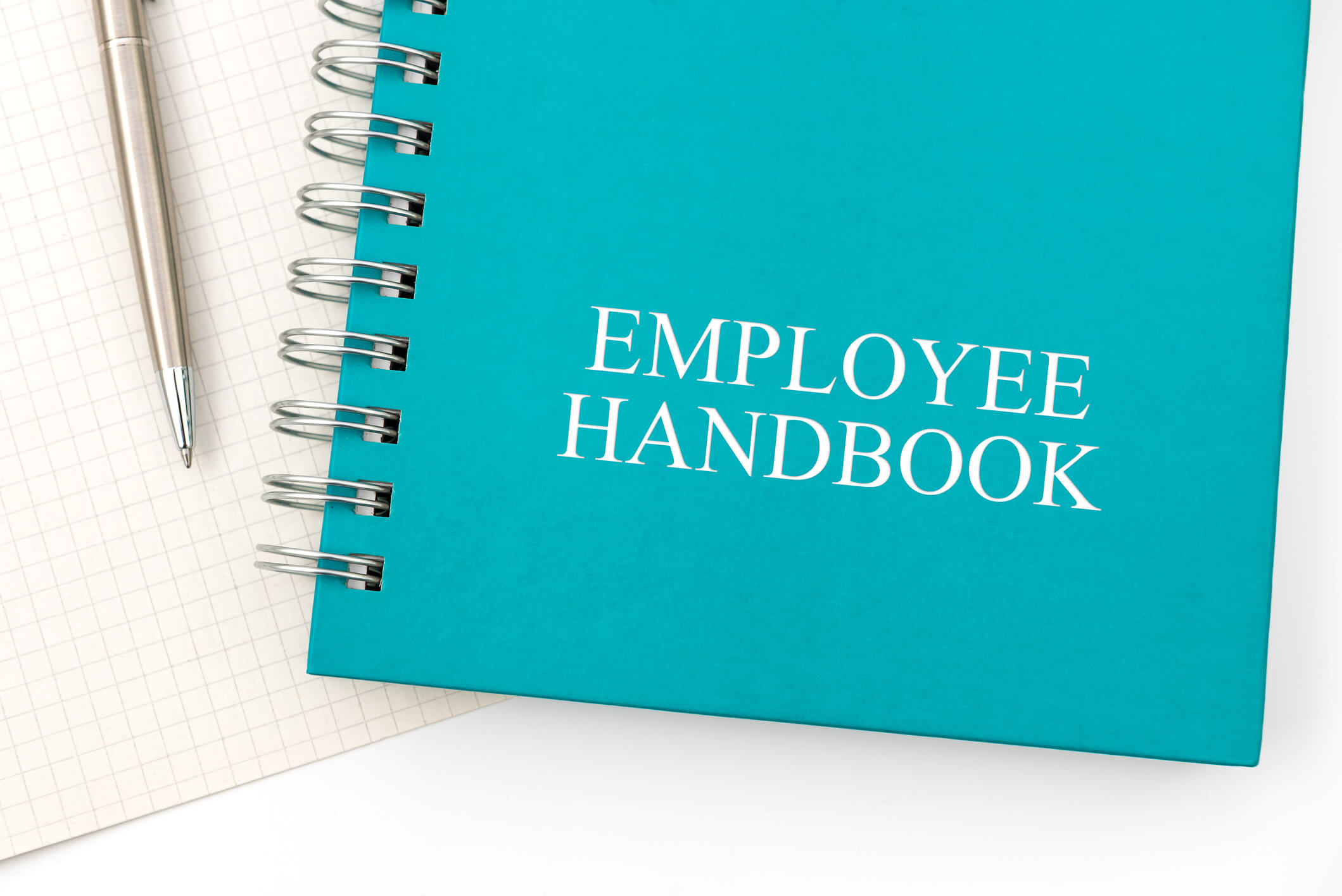An employer-employee relationship built on trust is one of the essential attributes of any successful business. Creating a solid connection and developing effective communication with your employees is what companies strive to achieve. Businesses that successfully establish a point-of-contact with their workforce and communicate their company’s policies and procedures in an effective tone are more likely to avoid potential in-house conflicts and misunderstandings. An employee handbook serves as a blueprint that helps employees know what they can expect from the company.

What Is an Employee Handbook?
An employee handbook is an essential tool that communicates the company’s rules and outlines its policies, procedures, and expectations. A well-written handbook is critical for kicking off effective communication and creating a robust relationship with your employees. In short, it helps employees know that what the company expects from them is deemed necessary. On the contrary, an employee handbook helps companies know that their employees are on the same page. New hires are given a copy of an employee handbook on their first day, along with necessary forms to sign, acknowledge, and agree to the terms. A well-crafted employee manual highlights the critical aspects of the business that are primarily HR-concentrated. These help companies avoid potential conflicts and prevent costly errors and misunderstandings.

Why Have an Employee Handbook?
All your employees (new and old) must understand your company’s policies and procedures in depth. They may be hard to comprehend, but the employee must read them thoroughly. No matter what, employees must abide by everything stated in the handbook if they want to be considered responsible.
An employee handbook shows that the company treats every employee equally, and the rules apply to everyone. Whatever the company intends to include in the handbook must be well-structured and promote the employees’ interests. This promotion will eventually create a positive culture and a safe work environment for every individual. Companies can protect themselves from lawsuits, wrongful termination, sexual harassment, gender biases, etc.
Provisions Required by Law
Drafting an employee handbook is quite an undertaking. Before writing a handbook, business leaders must bring attorneys into the loop, so you must become familiar with local and federal employment laws. Some businesses have operations in multiple states, meaning they must abide by local and federal policies, providing them legal grounds for drafting various handbooks for employees in each state. Why? Each state has different employment laws, and companies must abide by them. The policies you must adhere to in an employee handbook by law include medical leave policies (for a severe health conditions, childbirth, and more), equal employment opportunities, non-discrimination policies, staff’s compensation policies, and more.

General Clauses Every Handbook Should Include
- It is essential to understand that the handbook highlights the business’s crucial areas by which employees must abide. Agreeing to the form means that the employee will uphold the company’s rules and policies—it makes no promises on continued employment. This indicates that the handbook is not a contract, and this disclaimer must be included in the handbook.
- The policies of the company are always subject to change. It must be mentioned that plans can change anytime with or without notice as the company deems appropriate and necessary.
- An employee acknowledgment page must be included, letting the company know that their employees know the company’s policies, rules, and procedures.
What Else Does an Employee Handbook Cover?
Depending on the company’s size, nature, and location, you must include the company’s perspective on some issues. Since the employee manual has to communicate the company’s policies and procedures, it must be productive and communicative enough to impact the employees. An employee handbook must also cover employee policies, employee benefits, bonus policies, paid-time-off policies, the company’s history, employee evaluation/discipline/termination policies, office procedures, employee behavior, and abiding by SOPs (Standard Operating Procedures).
 About Complete Controller® – America’s Bookkeeping Experts Complete Controller is the Nation’s Leader in virtual bookkeeping, providing service to businesses and households alike. Utilizing Complete Controller’s technology, clients gain access to a cloud platform where their QuickBooks™️ file, critical financial documents, and back-office tools are hosted in an efficient SSO environment. Complete Controller’s team of certified US-based accounting professionals provide bookkeeping, record storage, performance reporting, and controller services including training, cash-flow management, budgeting and forecasting, process and controls advisement, and bill-pay. With flat-rate service plans, Complete Controller is the most cost-effective expert accounting solution for business, family-office, trusts, and households of any size or complexity.
About Complete Controller® – America’s Bookkeeping Experts Complete Controller is the Nation’s Leader in virtual bookkeeping, providing service to businesses and households alike. Utilizing Complete Controller’s technology, clients gain access to a cloud platform where their QuickBooks™️ file, critical financial documents, and back-office tools are hosted in an efficient SSO environment. Complete Controller’s team of certified US-based accounting professionals provide bookkeeping, record storage, performance reporting, and controller services including training, cash-flow management, budgeting and forecasting, process and controls advisement, and bill-pay. With flat-rate service plans, Complete Controller is the most cost-effective expert accounting solution for business, family-office, trusts, and households of any size or complexity.




